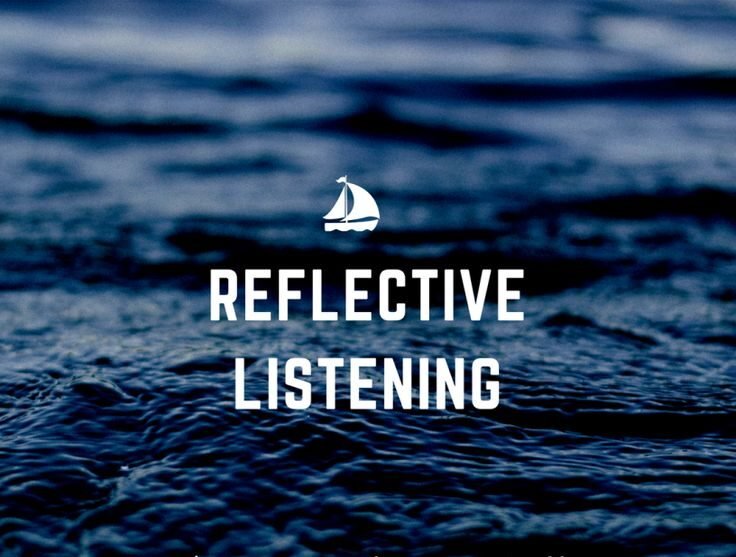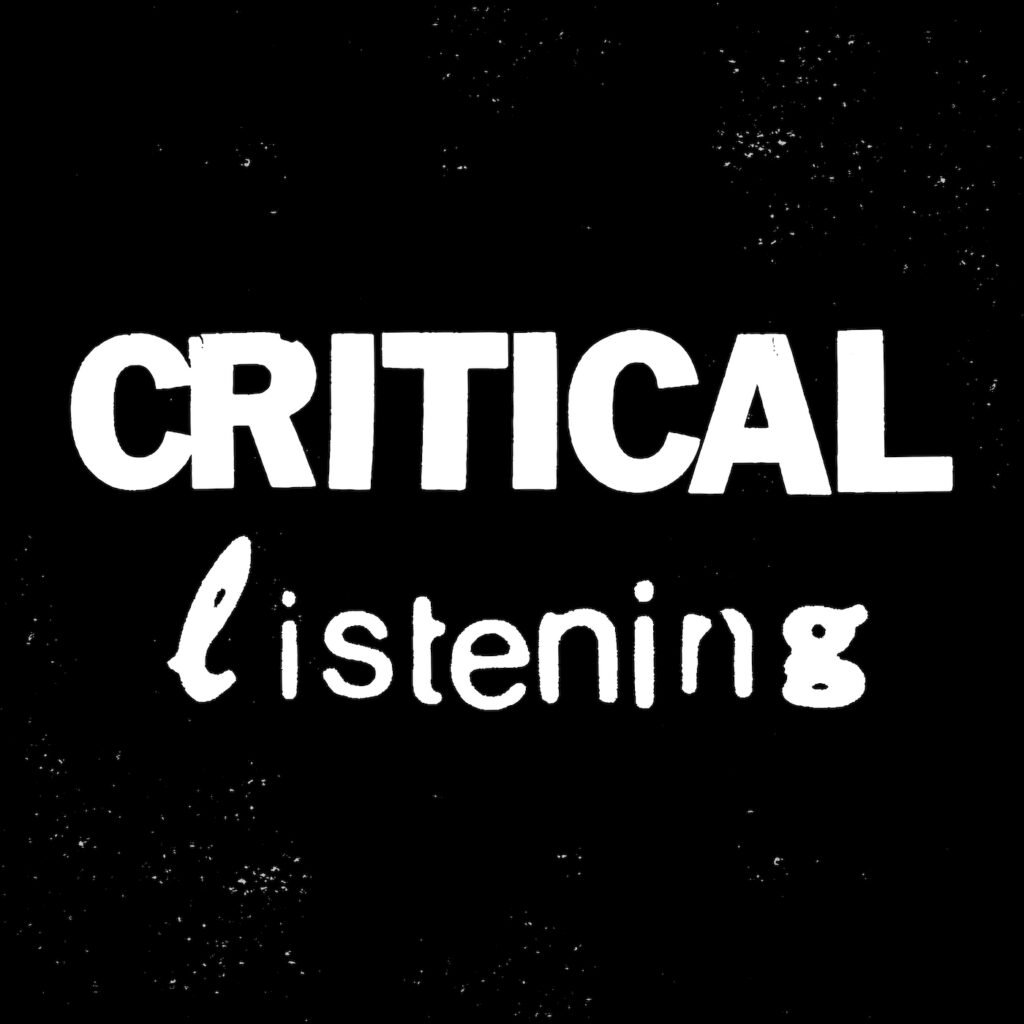I can Almost Hear it!

Is it a skill to listen?
I’m not sure if you suffer or suffered from this? This moment where your in response mode. You are just waiting for them to finish talking so you can give your input? I know I used to battle with this. As soon as I found out the problem or situation. My mind would go straight into response mode.. Why? To be honest I don’t know if iv’e fully figured that out yet! But what I do know is that. Wisdom, knowledge or a moment of growth. More often it happens in the times where you and I are quiet. Where we are present in the moment fully engaged in maybe reading something, or seeing something. Its using your eyes and ears. Not when your speaking. So I thru the years started to practice listening. I would have to actively tell myself to shut up lol. I’m just kidding kinda lol. But overtime of learning what areas of my listening or non-listening I was doing and why. I started to re-wire my mind in meetings, relationships and just life. It’s crazy how much you can learn from just chatting and listening from a random stranger right! I’m sure you’ve had those moments too. You can even learn more about something , someone or even yourself in the silence’s of life.
The Different types of Listening.

Active listening is a key communication skill that involves fully concentrating on, understanding, and remembering what they have said. It’s about being present and engaged, both verbally and nonverbally, to ensure the message is accurately heard and understood.
Core Principles of Active Listening:
- Listen for total meaning: Pay attention to both the factual content and the feelings or emotions underlying their message.
- Respond to feelings: Acknowledge and reflect the their emotions to demonstrate empathy and understanding.
- Note all cues: Be aware of nonverbal communication like body language, facial expressions, and tone of voice, as they can convey deeper meaning.
- Some Key Techniques for Practicing Active Listening:
- Be fully present: Give the the person undivided attention, eliminate distractions, and focus on their words and nonverbal cues.
- Show interest: Use positive body language like maintaining eye contact, nodding, and having an open posture to signal engagement.
- Encourage the speaker: Use verbal cues like “I see,” “Yes,” or “Go on” to show you’re following along.
- Paraphrase and reflect: Restate what their points are. In your own words to confirm understanding and demonstrate that you’re processing their message.
- Ask clarifying and open-ended questions: Seek clarification on anything unclear and encourage the them to elaborate on their thoughts and feelings.
- Avoid interrupting or judging: Allow them to finish their thoughts without interjecting your own opinions or biases.

Reflective listening is a powerful communication technique that goes beyond just hearing the words spoken. It involves actively paying attention to the someone’s message. Including both the factual content and the underlying emotions and meanings, and then reflecting that understanding back to them. This process helps to build empathy, deepen understanding, and strengthen relationships.
Here’s how to be a reflective listener:
1. Give Undivided Attention:
- Focus on the speaker: Eliminate distractions and give your full attention to the person speaking.
- Use non-verbal cues: Maintain eye contact, nod occasionally, and use open body language to show you are engaged.
2. Listen Actively:
- Pay attention to both verbal and non-verbal cues: Listen to the words, tone of their voice, facial expressions, and body language to gain a deeper understanding of the message they are wanting to convey.
- Avoid interrupting: Allow them to express themselves fully before responding.
3. Reflect and Clarify:
Ask clarifying questions: If unsure about something, ask open-ended questions to clarify the what their meaning or feelings are.
Paraphrase and summarize: Re-state what has been heard in your own words, to confirm understanding and show you’re actively processing the message.

Critical listening is a form of listening that involves not only understanding what someone is saying but also analyzing and evaluating the message. It’s a proactive way to communication that requires careful consideration of the speaker’s words, intent, and the validity of the information being shared with you.
Key Aspects of Critical Listening:
- Analysis: Breaking down the message to identify its components, including main the points, supporting details, and the relationships between ideas.
- Evaluation: Assessing the quality, credibility, and relevance of the information being shared.
- Discernment: Distinguishing between facts and opinions, identifying biases and assumptions, and recognizing potential drawbacks or limitations.
- Questioning: Asking clarifying questions and probing deeper into their evidence and reasoning.
- Open-mindedness: Being open to new ideas, even if they aren’t the same as your own beliefs, and evaluating them.
How to Be a Critical Listener:
Open your mind to new ideas: Be open to different perspectives and consider them thoughtfully.
Consciously decide to listen critically: Make a conscious effort to move beyond passive listening and actively engage with the message.
Avoid making assumptions: Do not jump into conclusions or allow your own biases to interfere with your understanding of the message.
Trust your natural reservations: If something doesn’t seem right or logical, trust your intuition and investigate further then.
Common barriers to effective Listening.
1. Internal Distractions:
Wandering thoughts: Our minds often wander to our own worries, to-do lists or upcoming events.
Response preparation: Focusing on formulating our reply instead of absorbing what the person is currently saying.
Preoccupation with personal issues: Being consumed by our own emotional or personal situations can make us less present in the conversation.
2. Environmental Distractions:
Noise: Loud noises, background chatter, or buzzing electronics can make it difficult to hear or focus.
Visual distractions: Anything that catches our eye, like a busy office or someone else’s screen, can divert attention.
3. Personal Biases and Assumptions:
Prejudging the speaker: Forming opinions based on someone’s appearance, background, or beliefs before listening.
Confirmation bias: Favoring information that aligns with our existing beliefs and dismissing anything that contradicts them.
Stereotyping: Making assumptions about someone. Leading to biased listening.
4. Lack of Empathy:
Inability to understand or share another’s feelings: This can lead to a superficial understanding and a failure to connect.
Dismissing or minimizing someone else’s feelings: Not acknowledging the person’s emotional experience.
Lets get some skills.
Ok so now we can hopefully identify thru all that information on what types of listening maybe we use most? Or maybe see certain areas we may want to get better in. It’s interesting to get to learn more about yourself isn’t it!? Well lets take a look at some skills that might help you out!
So lets wrap up.
So in closing… I wanted to discuss this topic why? Because it was put on my soul to. Yea I know! believe it or not this wasn’t in my schedule of articles to write at all. But I felt that because I was listening. I heard what I needed to. Why? Because maybe someone out there that needs to learn to maybe listen a little more. We could be missing out on so much value if we are to just lean in. But yes we also can listen but still stand firm in our own beliefs absolutely! If you need and want to ask questions? Absolutely! Speak your thoughts or questions respectfully. But maybe thru hearing something outside your normal perspective or views you could expand your beliefs and ideas too. Be present when your having a conversation. You never know what your presence in that persons life that day could mean to them. Or maybe your faith is calling more and you need to hear the words that are the soft whispers. Whatever you may feel you might want to get better at in terms of listening. Then lets act on it! I’m here if you need to reach out. Being better listeners can help us in all areas of our life’s.

Leave a Reply